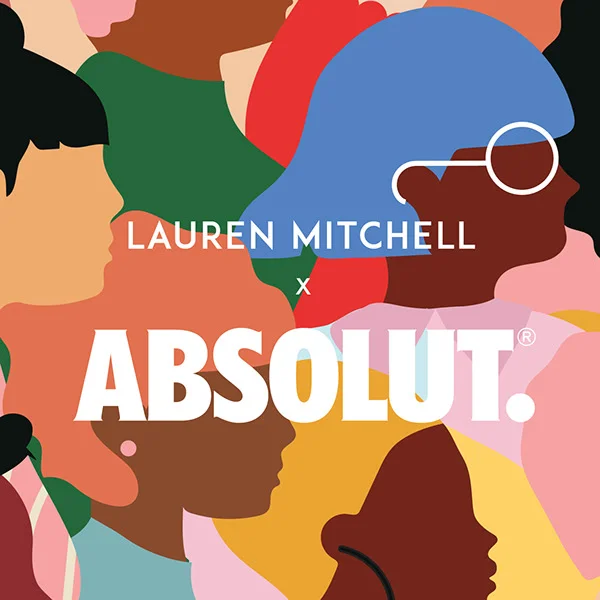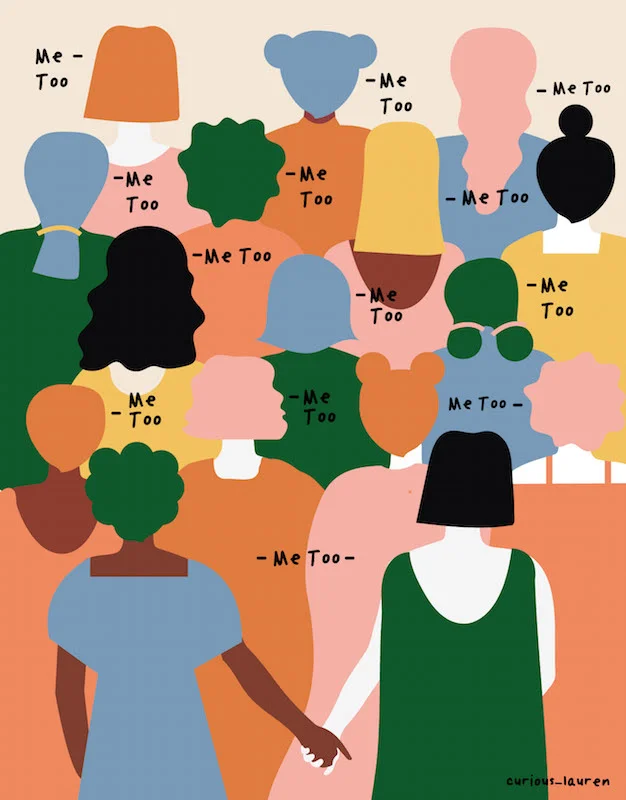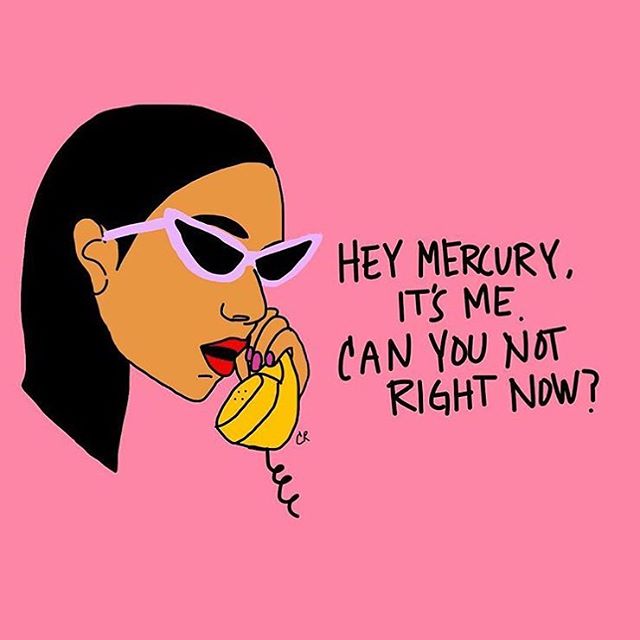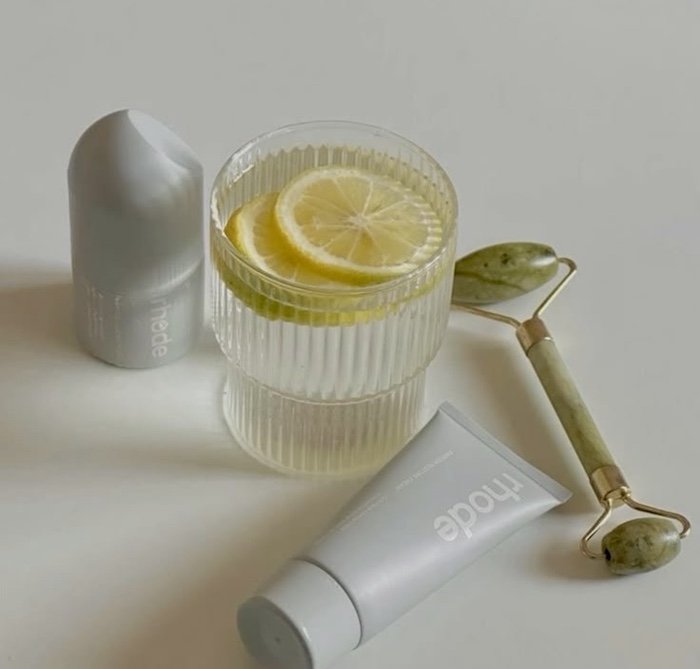Creative Spotlight: Lauren Mitchell
Lauren Mitchell is a multidisciplinary Art Director and photographer from Johannesburg, South Africa. She has worked on campaigns for Absolut, McDonald’s, Estee Lauder, and Clinique. Much of her personal projects reflect feminist messages and various metaphors on women’s empowerment through issues of race and sexual discrimination. In this interview we touch upon her viewpoints on gender equality as well as the creative process that goes into art direction.
How or when did you first become interested in pursuing a career in graphic design / art?
A creative career was never a part of my plan and I didn't take art in school and prior to my first year as a Photography student, Design Communication had never been something I thought you could make a career out of. My parents shared this sentiment, luckily we were all wrong. I ended up enjoying the subject so much, I pursued it as my major.
Who are some artists that you look up to or are inspired by?
Rich Mnisi - look him up he's amazing! —> @rich_mnisi
Jody Paulsen - his work is just incredible.
Olivie' Keck - Illustrator but using traditional mediums, her work is so colourful.
When working on an advertising campaign, how much of the initial process is driven by your ideas or vision? Or do you go by what the client wants/needs before creative brainstorming?
So generally, and I say this lightly, the basic formula that I follow *mostly* is:
Dissect the client brief, understand what the ask is, then creatives and strategists begin the research. Once we have a solid strategy and a home-hitting insight (great campaigns are built on brilliant insights, which are basic human truths.) We start brainstorming. Obviously, everyone has their opinion and ideas of what we should do, but the magic is in the collaboration of different minds, experiences and talent.
It doesn't always work this way, sometimes it takes days or weeks and other times you can crack something amazing by yourself as you walk out the briefing room. Creative thinking is like a muscle, the more you train it, the easier it gets.
How does one become an Art Director?
As far as I know, you can study Art Direction. But naturally, if you're a thinker and you like to go beyond just the craft of design, it's a position you can grow into. If big ideas warm a place in your tummy, you're probably halfway there. Apart from being conceptual, traditionally, Art Directors often create and oversee the visual language, style and tone of whatever is being created, with a writer as a trusty partner. Creative leadership is usually very good at identifying who has a knack for Art Direction, so if it's something you want to pursue, try to learn from someone whose work and way of thinking excites you.
One of your standout pieces, “You’re Either A Feminist or You’re A Sexist” is powerful in both words and imagery. Have you ever had an experience where you felt your voice wasn’t being heard? And how did you overcome it?
I think I've mostly had a very positive experience with how my work and my voice has been received. When I started out, and to talk to the piece you're referring to; I used to work for a publication where I would create illustrations for writers who wrote our articles. This specific illi was for a piece on Feminism and how we should talk more about it. It basically just pushes the point that Feminism = Equality, and if you don't believe in gender equality, you're sexist. It's quite a bold, aggressive statement but it's something that resonated with me. I have had issues in the past where I've been called ridiculous things like a "feminazi", but we fight fire with fire and continue to fight the good fight.
Something I was once told (by a man, obviously) is to avoid just making work that heavily aligns with feminist thinking because I would steadily narrow my following and people that would engage with my work. I'm very aware of the fact that the majority of the people that follow me or invest my work are women and the LGBTQIA community, and I'm ecstatic about it, because maybe for the first time in history, we live in a world where art is made by marginalised individuals for other marginalised individuals.
It resonates with them and maybe helps them cope with something. It's important for art to have a narrative for people who can't use their own voice.
Growing up and living in South Africa, what are three things that you could share about it that people wouldn’t know?
1. Despite popular belief, we don't have wild elephants and lions roaming our streets, we are very much a civilised country with the most diverse population with such rich culture and history.
2. We have really REALLY great local beer.
3. Johannesburg is the largest man-made forest!
Is there an art scene in Johannesburg, and if so what is it like?
The art and creative industry in Johannesburg, South Africa, and Africa for that matter, is thriving, sometimes I can't believe the talent I am surrounded by, and luckily for the rest of the world, people are starting to take notice. Art, fashion, film and photography coming out of here is just unlike anything you have ever seen before and it's so humbling and empowering to be part of it.
“Share your work, even if it scares you.
You can only get better.”
Who are your dream brands to work with?
Yoh, there are so many. But if I had to choose a top 10, in no particular order:
Adidas
Gucci
TIME
Nike
Lazy oaf
Google
Wacom
Apple
Design Indaba
Adobe
Three words you would use to describe your art?
Feminine, empowering, colourful.
If you could give a piece of advice to a young creative girl just starting out (in any medium), what’s the most important thing you would tell her?
Share your work, even if it scares you. You can only get better.
Choose where you work based on great creative leadership.
Don't ever think you can't learn something from someone.
Be meticulous with your work, make something that you can be proud of, even if it's a stupid fucking web banner. (we have all been there)
NEVER let a company undervalue you.
Be friendly, kind and believe in yourself and your work.
And lastly, a great piece of advice that was graciously bestowed onto me and now, you:
Learn to identify the difference between an idea and an execution, don't ever confuse them.
If you want a further explanation on this, find me on Instagram at @curious_lauren, DM me and we can chat. :)















